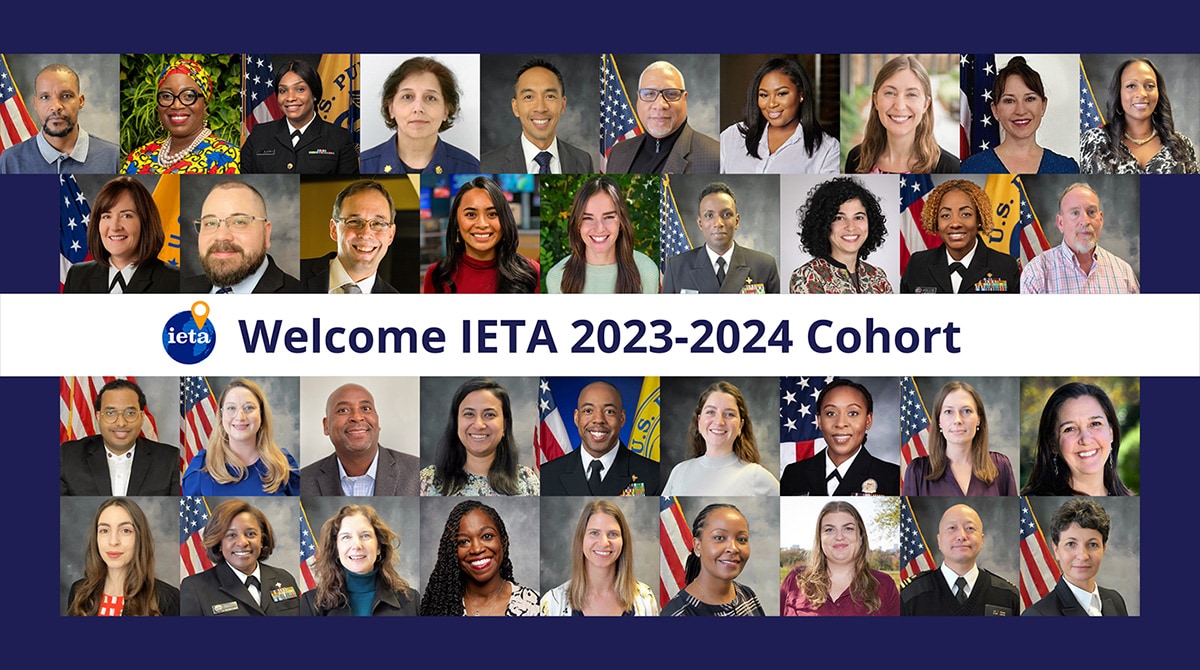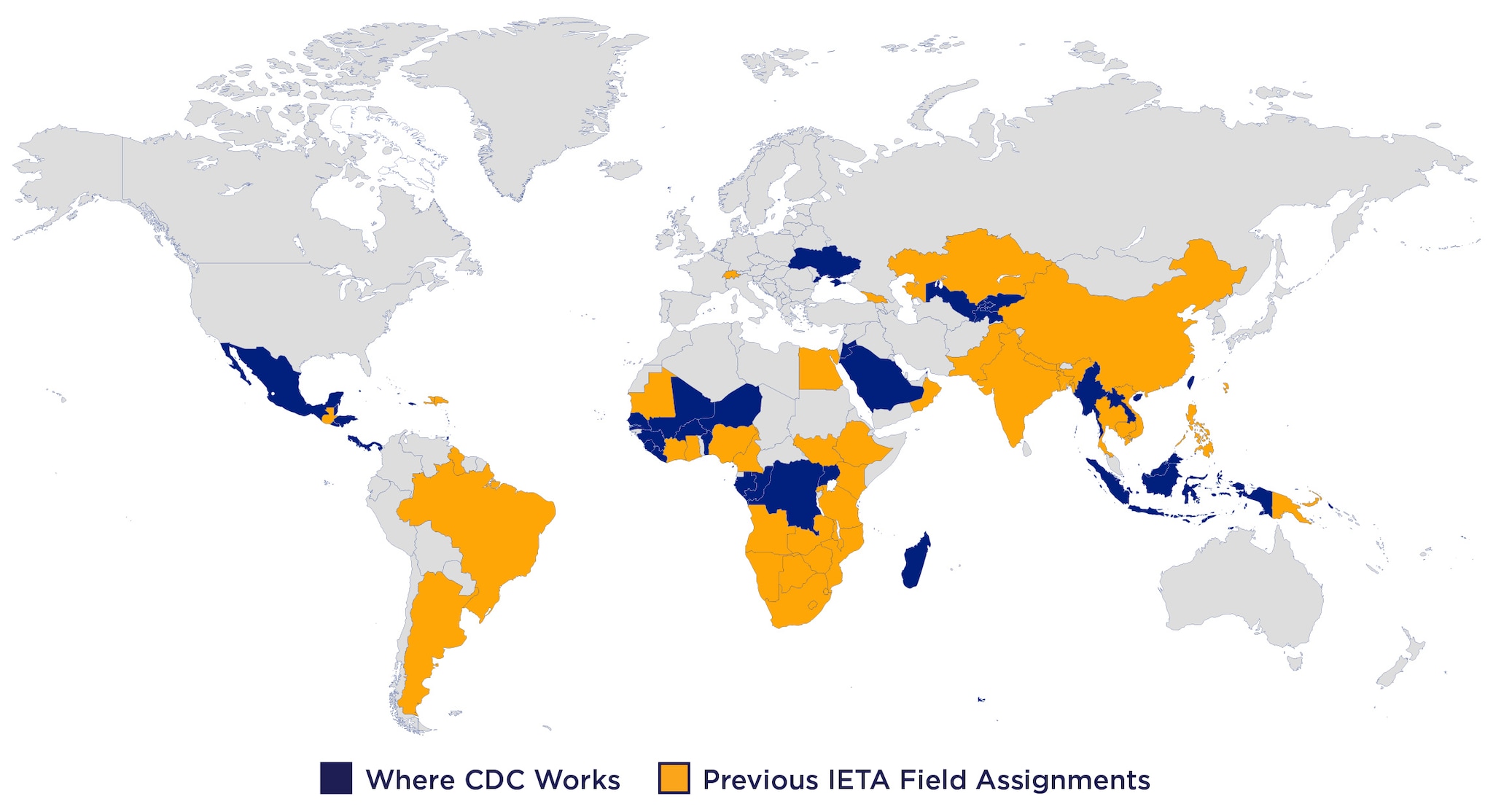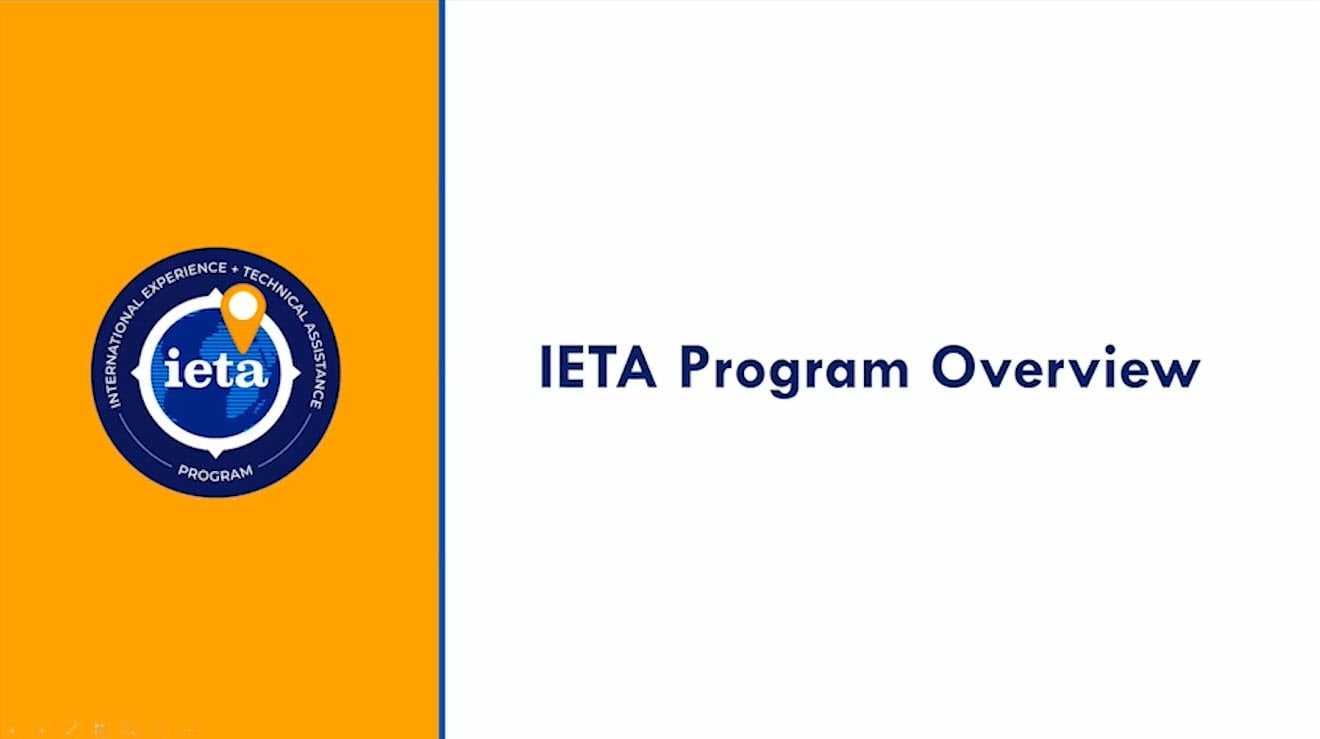At a glance
- CDC’s International Experience and Technical Assistance (IETA) program aims to cultivate the global health workforce pipeline for U.S. Department of Health and Human Services (HHS) employees.
- IETA offers the opportunity to gain global public health experience, while providing technical assistance to CDC overseas offices and partners.
More Information

Overview
Since 1997, the IETA program has provided meaningful global public health experiences to over 521 HHS employees. This includes 51 U.S. Public Health Service (USPHS) Commissioned Corps officers.
IETA is a 12-month program offered by CDC's Global Health Center. The program was designed to offer HHS employees the opportunity to gain global public health experience while providing technical assistance to CDC overseas offices. The application period takes place every summer.
Interested in applying?
Selected applicants participate in the following:
- Program orientation.
- Week-long security training required for all international travel.
- 12-week minimum field assignment in a country where CDC works.
- Closing meeting where participants present on their experience.
Participants must successfully complete their field assignment by September 1 to earn an IETA program completion certificate.
Goals
The IETA program has four main objectives:
- Build a pool of HHS staff qualified for, and interested in, long-term assignments with HHS global programs.
- Create a cadre of staff capable of responding to increasing requests for short-term global technical assistance.
- Provide IETA participants with an opportunity to apply their technical skills to a work experience in the global public health sector.
- Facilitate IETA participants to take the experiences gained through the IETA program and apply them to their daily work.
How the program works
The IETA Program works with participants in the Fall to complete steps for their field assignment in the new year. This includes acquiring a medical clearance from the U.S. Department of State and completing all necessary security trainings required by the U.S. Government. The host program covers all costs associated with required U.S. Department of State trainings.
Securing Trainings
- Overseas Security Awareness Training course: 2-day training required by U.S. Department of State.
- Foreign Travel Safety Brief: 2-hour virtual training required by CDC.
- Foreign Affairs Counter Threat: 5-day in-person security awareness training required by U.S. Department of State.
- Counter Threat Awareness Training: 5-hour virtual training required by CDC.
Orientation
This orientation to global work is a 5-day meeting that takes place in November each year. It covers several topics, including, but not limited to:
- IETA program overview.
- Introduction to CDC overseas programs, Ministries of Health, and U.S. Embassies.
- Preparation for overseas assignments: Resources, available benefits, and staying healthy.
- International safety & security concerns.
- Preparing for the cross-cultural aspects of working internationally.
- Perspectives from IETA alumni and supervisors.
Closing meeting
The closing meeting takes place in September each year, after all participants have completed their assignments. It is generally 3 days in duration. Participants present individually on their international experience, sharing information about their technical work as well as lessons learned, challenges, and surprises. There is also a focus on making further short- and long-term overseas assignments a reality.
Outcomes
The IETA program is designed to help HHS FTEs and USPHS officers determine if working in global public health is right for them. The program defines the following employee outcomes as a “success”:
- Continues working internationally for HHS.
- Supports global programs from headquarters.
- Determines that work and living abroad is not right for them.
Get involved
Learn more about IETA alumni, the current cohort, demographics, and which country and regional offices participants have been assigned to.


